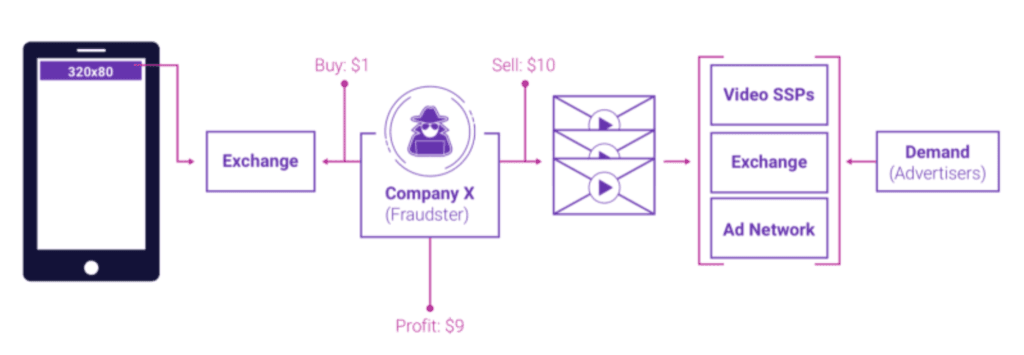We all know the basics of how advertising works, companies put out ads, you as their potential sees the ad and the company will pay for the ad depending on how many times it was seen. However, this model has created a loophole, where certain individuals are able to cheat the system and bill advertisers more without an actual reach.
A new scam has been unearthed by fraud detection firm, Protected Media in collaboration with BuzzFeed News. The two discovered that a number of Android apps containing ads were draining users battery while at the same time costing advertisers thousands of dollars without a return on investment.
The scam, a technique known as Ad Stacking – where fraudsters hide multiple auto-playing video ads behind a typical ad banner. These hidden video ads would register as watched thus they generate ad revenue even if no one actually saw them.
BuzzFeed News gave this explanation, “[Developers] sell banner ads, which appears in the app and is visible to users. Then, hidden from view behind that banner, fraudsters conceal auto-playing video ads that no human being actually sees, but which register as having been served and viewed. [The developer] gets paid for the small banner ad in the app that users see, but the fraudsters earn many times that amount by stuffing far more lucrative video ads behind the banner. Ultimately, it’s the brands whose ads were shown in hidden video players that lose money to those running the scheme.”


A breakdown of how the scheme works – BuzzFeed News
The consequence? Advertisers would be paying for ads that have no return on investment and you, the intended customer would pay for this practice through your battery life and additional data. This is because, the video ads (even if you won’t see them) are actually playing in the background, thus taking up your smartphone’s resources which means that you will experience battery drain similar to that of actively watching videos on YouTube. The mobile data part is quite obvious, since playing the videos requires a data connection and you guessed it, this comes from your bundle – similar case to the Kenyan websites that take up to 70% more mobile data just to serve ads to visitors.
This particular ad stacking fraud was traced to an Israeli ad network company with offices in New York that runs a video ad technology platform known as OutStream Media, a subsidiary of Aniview. When contacted by Buzzfeed News, Aniview denied liability, claiming that they run a self-service platform and were also in the process of weeding out these fraudsters who were taking advantage of their platform.
The report by Buzzfeed News and Protected Media did not disclose which apps they found to have been hijacked by this unethical practice, their argument is that the app developers are not to blame and thus they wished to protect them from public uproar. But what you can do is, if you notice an app gobbling down more data and battery life than it should, alert the developers as soon as you can.
Read the full report






Comments